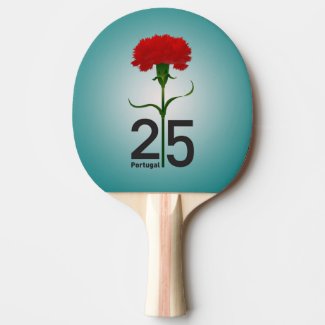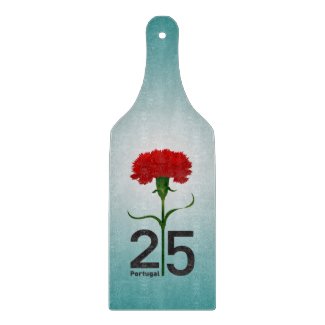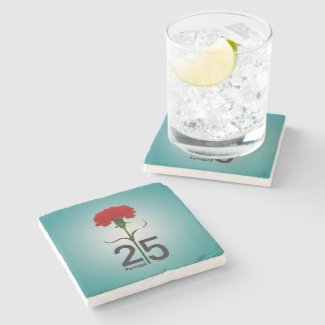Why did Carnation Revolution take place?

Portugal and red carnation Ping-Pong paddle by aportugueselove
Browse more Carnation Ping Pong Paddle
Hello friends and Zazzlers!
Here I am with a few more facts about Carnation Revolution. I don't know if you're fond of history. I am! So, why did this revolution take place?
- Civil liberties and political freedoms were inexistent.
- People could not assemble or make demonstrations or create freely. Just an example of someone who likes movies, me! Foreign movies could not be dubbed, only subtitled. The subtitles were more easily adjusted by the censors if they disapproved of the original dialogue.
- The "blue pencil" was a symbol of censorship. Censors used a blue pencil to make cuts of any text, image, or design that should not be published in the press. Books were seized.
- The people were tired of the oppressive government. Polícia Internacional e de Defesa do Estado or P.I.D.E. (International State Defence Police) was a wide network that spread its tentacles throughout Portugal and its overseas territories.
- The police encouraged citizens to denounce suspicious activities against it. These men and women were called bufos (snitches). Everyone lived in fear. Private, social and professional life was under constant surveillance.
- The prison of Tarrafal was created in the Portuguese colony of Cape Verde. It was the destination for those political prisoners considered dangerous by the regime. Tarrafal was known for its severe methods of torture. More than 30 persons were killed there. It was a real concentration camp.
No one managed to escape this concentration camp. It was called Campo da Morte Lenta - Camp of the slow death. Tarrafal was a place for the physical elimination of antifascist prisoners, through abuse, punishments, and diseases. When the prisoners arrived at the concentration camp they were housed in canvas tents. For two years they underwent authentic forced labor to build the accommodation for soldiers under the hot sun of the tropics. Soon they fell ill with malaria and other tropical diseases. There was no doctor or nurse, or medicine in the camp. One of the camp's Captains had been part of a military commission in Nazi German charged with studying the operation of concentration camps. An example of punishments inflicted was "the pan" - a cement building with just three holes made in the heavy iron door for light and air. Inside prisoners suffer from the heat. They survived in small compartments with small quantities of water and bread. Horror.
- Many young men were emigrating, often illegally, as a means of avoiding conscription. Many escaped because they could not stand the lack of freedom.
- Portugal was living under the strong influence of the Catholic Church. Portugal was the 3 F's country: Fátima, futebol and fado.
More about April 25 on my next postage!



Comments
Post a Comment
Thank you very much for visiting A Portuguese Love. Come back soon!